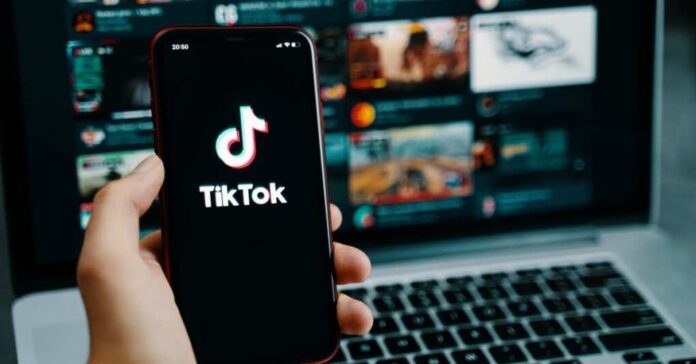The wildly popular TikTok is once again facing the wrath of lawmakers, with the House Energy and Commerce Committee advancing a bill that could potentially lead to a nationwide ban on TikTok across all electronic devices. The unanimous decision highlights lawmakers’ ongoing challenge to one of the world’s most popular social media platforms.
At the heart of this move lies the persistent concern regarding fears that TikTok may pose a spy risk linked to the Chinese government. The bill proposes banning TikTok from U.S. app stores unless separated from its China-linked parent company, ByteDance. This deadline applies to ByteDance’s divestiture of TikTok, and failure to comply would legally prohibit app store operators like Apple and Google from offering the app for download.
The bill’s primary goal is to prevent a Chinese firm from accessing vast amounts of American data. If the bill became law, TikTok would have less than six months to sever its connection with ByteDance. The emphasis here is on national security rather than the content shared on the platform, as lawmakers prioritize protecting American data.
In addition to legislative actions, there are legal challenges regarding data collection practices. Former children’s commissioner for England, Anne Longfield, is suing TikTok over its methods of collecting and using children’s data. The lawsuit represents millions of children in the UK and EU who have used the app, potentially entitling affected children to significant compensation if successful.
Moreover, concerns have been raised about TikTok’s data privacy and algorithm. Investigations have revealed that TikTok’s algorithm exposes users to harmful content while influencing which individuals and political movements gain attention. Critics argue that while the algorithm can have positive effects, it also has the potential to impact content visibility and user experiences negatively.
With over 100 million monthly active users in the U.S., TikTok’s popularity has sparked worries among government officials about the possibility of user data falling into the hands of the Chinese government. This concern has led to calls for greater transparency and accountability from the app’s developers.
Furthermore, there are concerns about free speech and First Amendment rights with these attempts to restrict TikTok. Critics argue that the measures could infringe on the rights of millions of Americans to express themselves freely on the platform, potentially affecting small businesses that rely on TikTok for promotion and engagement. As debates continue, finding a balance between national security, data privacy, and free speech remains a significant challenge in addressing the complexities surrounding TikTok’s operations and influence in the United States.
The legislation also considers similar restrictions for other apps controlled by foreign adversary companies. This bill represents the most assertive legislative action targeting TikTok since the company’s CEO, Shou Chew, testified before lawmakers last year that the app posed no threat to Americans.
The legislation marks a rare moment of bipartisan cooperation. Introduced earlier this week, the bill is championed by Wisconsin Republican Representative Mike Gallagher, who chairs the House Select Committee on China, Illinois Democratic Representative Raja Krishnamoorthi, the ranking member of the same committee, and New Jersey Rep. Frank Pallone, the panel’s ranking Democrat. Additionally, the White House supports the legislation.
Before the Thursday vote, TikTok proactively messaged its users and urged them to contact Congress and oppose the bill. The notifications emphasized the need to “stop a TikTok shutdown” and claimed that Congress was ”planning a total ban of TikTok.”
A TikTok spokesperson said the bill has a “predetermined outcome” and would “strip 170 million Americans of their Constitutional right to free expression.” The spokesman noted, “This will damage millions of businesses, deny artists an audience, and destroy the livelihoods of countless creators across the country.”
Representative Cathy McMorris Rodgers (R-WA) criticized TikTok for leveraging its influence to encourage users to reach out to their representatives.
In response, a TikTok spokesperson claimed that the notification was optional and dismissible, meaning users were not compelled to call Congress members to continue using the app. The spokesperson declined to provide further details on the matter.
Despite enjoying broad support within the committee, the bill faces opposition from external groups concerned about potential infringement on free speech. Sarah Krepps, director of the Tech Policy Institute at Cornell University, expressed doubt, stating, “I’m just not confident that this will actually sidestep the free speech concerns that have been raised with previous attempts to ban TikTok,” referencing recent legal challenges to state-level TikTok bans, including one that successfully overturned Montana’s law.
Hide your Tide Pods; this may be the most demanding “TikTok challenge” yet. Only time will tell if the bill can withstand the legal challenges already in the works.

















